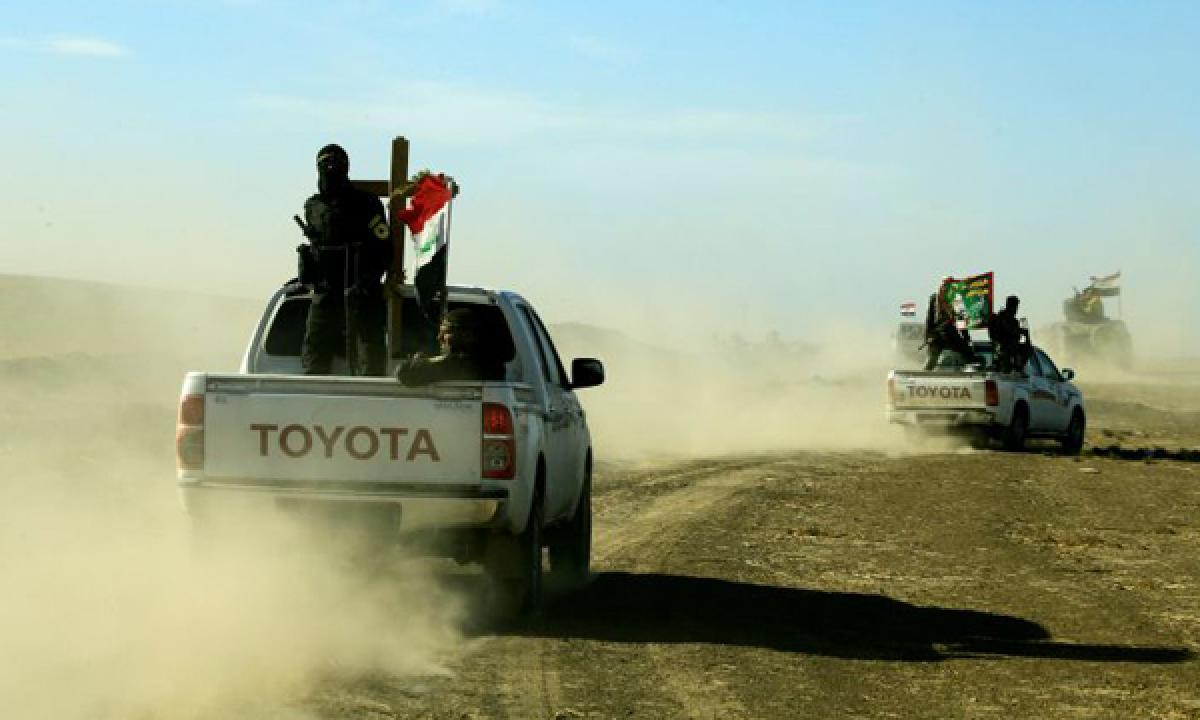Live
- Former Soldier Builds Temple for Rajinikanth, Installs New Idol on Superstar’s 74th Birthday
- Mohan Babu’s Daughter Manchu Lakshmi's Viral Post Sparks Controversy Amid Family Disputes
- NIST hosts alumni meet
- Upcoming Telugu OTT Releases: A Treat for Telugu Cinema Lovers in December
- Vedamrit Honey’ launched
- Arjun Das Brings Mufasa to Life in Tamil
- Odisha move to prepare maritime perspective plan
- Jal Jeevan Mission empowering women in rural areas: PM Modi
- Pradhan urges Nadda to set up pharmacy unit in Odisha
- Assembly winter session ends ahead of schedule
Just In

Iraq\'s foreign minister said on Monday that the fight to wrest back control of Mosul from Islamic State (ISIS) was making progress, citing what he called better-than-expected cohesion within Iraqi security forces and the US-led coalition. Ibrahim Al-Jaafari said it was difficult to predict how long the battle would take, but more than 1,000 Islamic State fighters had been killed, 650 had been take
Iraq's foreign minister said on Monday that the fight to wrest back control of Mosul from Islamic State (ISIS) was making progress, citing what he called better-than-expected cohesion within Iraqi security forces and the US-led coalition.
Ibrahim Al-Jaafari said it was difficult to predict how long the battle would take, but more than 1,000 Islamic State fighters had been killed, 650 had been taken prisoner, and about one-third of the area had been freed.
"Those are very good signs for the positive results of the operations. It's going better than we expected," al-Jaafari told reporters after a meeting with German Foreign Minister Frank-Walter Steinmeier. "Of course the fight must continue. But it's clear that the cohesion of the forces and the coalition played a significant role up to now," he said.
Al-Jaafari told reporters that he expected US President-elect Donald Trump to continue to support Iraq in its battle against Islamic State, as well as urgently needed reconstruction efforts once Mosul was liberated.
He said Iraq would need a programme much like the Marshall Plan under which the United States (US) helped Germany rebuild its infrastructure and economy after World War Two.
"We don't have agreements with individual administrations. We have agreements with countries," he said. Strategic support for Iraq had continued despite the transition in power from former President George W. Bush to Barack Obama, and he expected the same during the coming change at the White House. "These strategies don't change with the presidents. Agreements are signed and then they are binding for all involved," he said.
Al-Jaafari said Iraq would not accept any intervention by Turkey in the border region. Turkey is worried that Shi'ite militias who are supporting Iraqi forces could seek revenge against Sunni Turkmen in the city of Tal Afar, which sits on the main road between Mosul and Syria and has been a centre for insurgents in Iraq since 2003.
Al-Jaafari said Germany could potentially mediate with Turkey, but he had not asked for any specific help yet. Steinmeier said it was important to stick to the agreement that the core areas of Mosul would be liberated by Iraqi Sunni forces, not Shi'ite militias.
He said he and al-Jaafari also discussed the resumed bombardment of eastern Aleppo in Syria, and said it was important to get humanitarian supplies to civilians there and in other parts of Syria. "That is all the more important since we know that there will not be any big steps toward a political solution until the new administration takes power," he said.

© 2024 Hyderabad Media House Limited/The Hans India. All rights reserved. Powered by hocalwire.com







